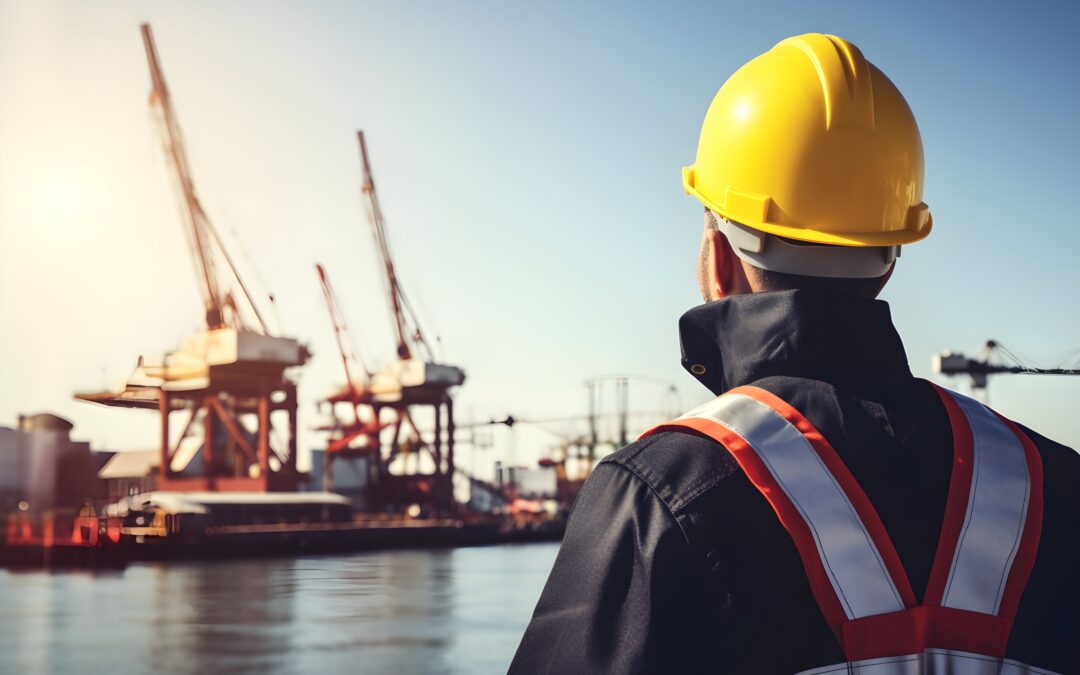Being a deep-sea fisherman is classified as one of the most dangerous jobs worldwide. The same is true of underwater welding and other maritime positions.
Maritime work is known for its unique challenges and risks. Accidents and injuries are a high risk for this specific industry.
Whether on the high seas or at a dock, maritime workers face a wide range of dangers. Keep reading to learn about the different types of maritime injuries and accidents that can occur. We will also cover the importance of maritime injury attorneys.
Dock and Pier Accidents
Dock and pier accidents are among the most common types of incidents that occur in the maritime industry. These areas are bustling with many different activities. This includes diverse ships coming and going, cargo being loaded and unloaded, and various machinery in operation.
It’s easy to see how an accident can happen at almost any time. This is even more true when you consider the combination of heavy equipment, slippery surfaces, and erratic weather conditions.
Slip and fall accidents are prevalent on docks and piers due to wet and uneven surfaces. These accidents can cause one or more broken bones. You could even expect head trauma and other types of injuries.
With cargo handling being a major part of dock work, there is a risk of objects falling from height and injuring workers.
Dock workers often operate heavy machinery like forklifts and cranes. Accidents caused by these powerful machines can lead to severe injuries or worse.
In some cases, hazardous chemicals may be present on docks, and spills can result in chemical exposures and injuries.
Maritime Toxic Chemical Exposure
Exposure to toxic chemicals is another significant concern for maritime workers. The maritime industry involves the transportation of various goods, including hazardous materials. This exposure can happen in several ways.
Cargo containers may leak hazardous substances, leading to chemical exposure for workers.
Workers involved in the handling of toxic materials may be at risk, especially if proper safety protocols are not followed.
On vessels, engine rooms can contain various chemicals and gasses. Accidents in these areas can lead to toxic exposure.
A lack of OSHA-approved ventilation can result in the accumulation of fumes and gasses. At a certain point, this can be harmful to workers’ health.
Maritime workers exposed to toxic chemicals may experience many different health issues. Some of these can include respiratory problems, chronic skin conditions, and long-term illnesses.
Offshore Maritime Injuries
Offshore work, which includes activities on oil rigs and platforms, presents its own set of dangers. These jobs involve long, grueling hours and exposure to extreme weather conditions.
Working on elevated platforms or in challenging weather can increase the risk of falls, often resulting in severe injuries. The operation of heavy machinery on offshore platforms can lead to accidents and injuries.
Oil and gas facilities have a high risk of fires or even explosions. If this happens, it can cause catastrophic injuries.
Vessel Sinking
One of the most catastrophic incidents that can occur in the maritime industry is the sinking of a vessel. This can happen for various reasons, including storms, collisions, or equipment failures.
When a vessel sinks, it can lead to a range of injuries and even loss of life. Survivors of such incidents often require immediate medical attention, and the emotional trauma can be long-lasting.
The Vital Role of Maritime Injury Attorneys
With the help of an injury attorney, an injured worker can fight to receive compensation for medical bills and lost wages, and also seek justice for their pain and suffering. Maritime injury attorneys in Louisiana can help in many ways. Their knowledge and experience can help victims find their way through a complex legal landscape.
Understanding the Extent of Maritime Law
Maritime law is quite different from other areas of law. Maritime injury attorneys should be well-versed in the Jones Act. The same is true of the Longshore and Harbor Workers’ Compensation Act, among other regulations that apply to maritime workers.
Maritime injury attorneys should do their best to ensure victims receive the full protection of these laws.
Investigation and Evidence
Attorneys work to gather evidence related to the accident, which is essential in proving liability. This includes interviewing any witnesses, combing through relevant records, and more. You can also expect them to work with experts. That way, they can reconstruct the details that led up to the injury.
Negotiation and Litigation
Maritime injury attorneys can negotiate with insurance companies and employers to secure fair compensation for their clients. If a settlement cannot be reached, they should be prepared to take the case to court to fight for the victim’s rights.
Ensuring Timely Filing
There are often rigid and highly specific deadlines for filing claims in maritime injury cases. A maritime injury lawyer can help ensure all paperwork is submitted on time. Doing this will help preserve the victim’s legal rights.
You Should Get Legal Representation After Maritime Injuries and Accidents
There are many factors that can cause maritime injuries and accidents. Since these situations are often complicated, getting legal representation can often give you the best chance of a possible settlement.
You can put your trust in the team at Talbot, Carmouche & Marcello.
We’re proud to serve Baton Rouge, New Orleans, and the greater Louisiana area. Contact Talbot, Carmouche & Marcello for a free consultation.

